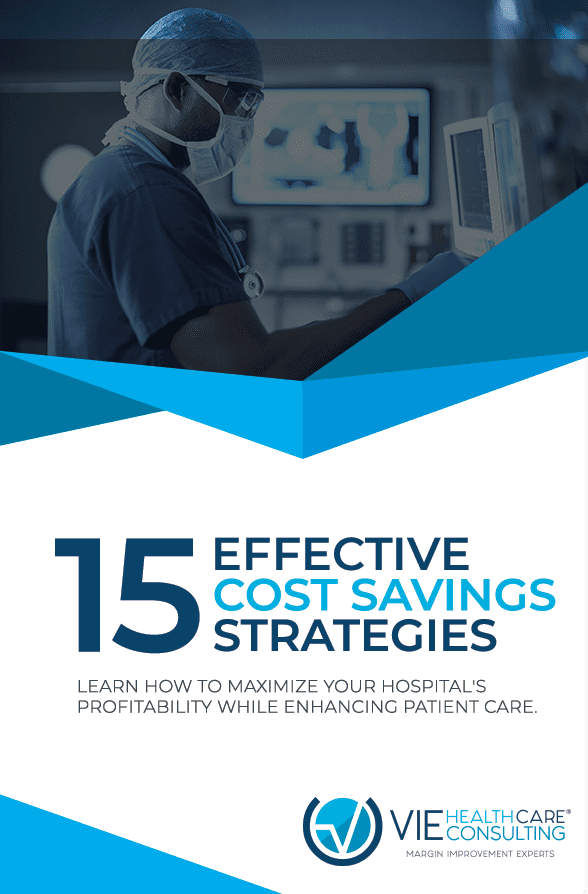6 Findings for Rapid Cost Reduction
This article was written by Lisa Miller.
Since 1999, VIE Healthcare Consulting has been responsible for hundreds of solutions, and ideas for expense reduction for health systems around the country.
In this blog, I outline six strategies for rapid cost reduction in your hospital that you may be overlooking:
Merchant cards: While both your hospital and your affiliates accept debit and credit card payments, you may not be aware of the total costs charged for these services. At VIE Healthcare, we frequently identify additional fees and assessments concealed within transactions. In many cases, these costs are confusing but, in general, they emerge from three points during the payment process. These are processor, card vendors and payment gateways. Reducing the cost of these fees is an effective solution to reduce your hospital’s expenses. We recommend that merchant card reviews are carried out on a periodic basis.

Real estate leases: Real estate is often overlooked during a cost reduction exercise. In our experience, however, over 80% of hospital real estate leases contain overcharges that go unnoticed, resulting in substantial losses for your hospital. For instance, Common Area Maintenance (CAM) charges can contain significant costs that are only reviewed on an annual basis as costs that sit outside of the actual monthly rental. CAM charges affect areas such as electricity, maintenance and snow removal. Our specialist RX Realty service from VIE Healthcare helps your hospital to reclaim money lost to errors in real estate and delivers significant cost savings in under 60 days.
Bank fees: Like merchant cards, bank fees represent a great opportunity for cost reduction. I recommend that they are analyzed and evaluated on a monthly basis and renegotiated on a monthly or quarterly basis. Hospitals can often save hundreds of thousands of dollars simply by renegotiating their bank fees, yet this key area for cost reduction is often not considered.
Hospitals can often save hundreds of thousands of dollars by renegotiating bank fees, yet this key area is often overlooked. Click To Tweet
Workers’ compensation costs: Workers’ compensation costs often contain financial miscalculations, wrong classification codes and errors in experience modification codes. Many hospitals can realize cost savings and revenue just by evaluating this one area. We recommend an annual audit for all of our clients.
Advertising contracts: The whole advertising space is a growing area of expenditure for hospitals. Whether it’s billboards, digital, TV or print, it is essential to understand how your advertising contracts are negotiated and implemented. Working with the right partner can help you to understand all of the moving parts associated with advertising costs.
Legal costs: From an auditing perspective, it’s essential to understand exactly what your hospital is being charged for. If you pay a standard hourly rate for your legal services, is that hourly rate consistent across all invoices? What additional fees are included on your invoices? In our experience, legal invoices can contain errors or extra charges which are not mapped to the agreement in place. Healthcare organizations shouldn’t be afraid to examine their legal invoices.
[1] htttps://www.advisory.com/daily-briefing/2019/01/07/consumer-ads



